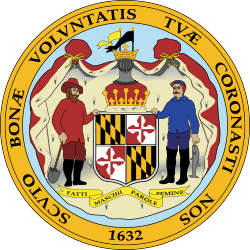November 14, 1808 | |||||||||||||||||
| |||||||||||||||||
| |||||||||||||||||
| Elections in Maryland |
|---|
 |
The 1808 Maryland gubernatorial election was held on November 14, 1808, in order to elect the governor of Maryland. Incumbent Democratic-Republican governor Robert Wright was re-elected by the Maryland General Assembly against Federalist candidates former governor Thomas Johnson, fellow former governor John Eager Howard and former United States senator Richard Potts. [1]

